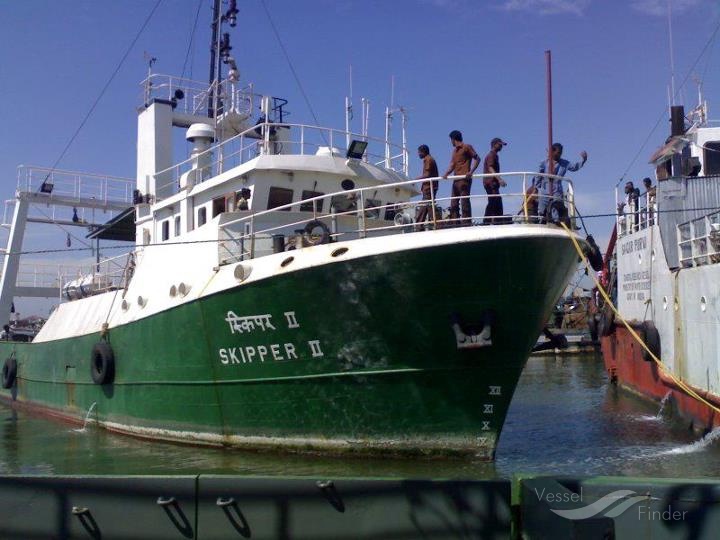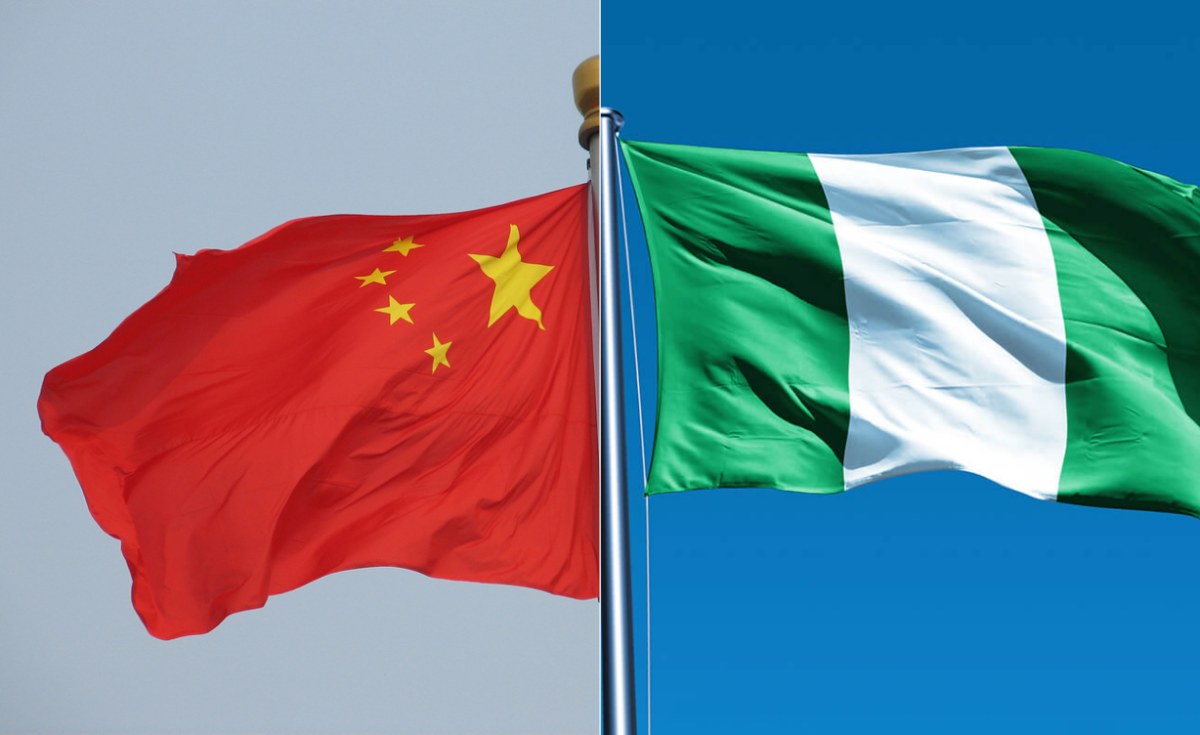General
Pulse’s African Readers to Get New York Times Contents

By Dipo Olowookere
Readers of Pulse in Nigeria, Ghana and Kenya now have the opportunity to get contents published by New York Times.
This was made possible as a result of an agreement signed between the New York Times News and Ringier Africa Digital Publishing (RADP), the parent body of Pulse.
The deal, according to RADP was signed to further expands its news and media portfolio by publishing New York Times journalism under its new media brand Pulse in Ghana, Kenya and Nigeria.
Pulse informs and entertains Africa’s mass and mobile population with a reach of 100 million people every month.
The launch of New York Times journalism on Pulse will bring award-winning reporting and storytelling to Africa’s informed readership.
The New York Times is a globally renowned media outlet for news and opinion, which will complement Pulse’s news coverage. Pulse readers will now have access to The New York Times’ top news of the day as well as a selection of other digital articles addressing key social, political and economic issues as well as videos, photos and graphics.
“Publishing content from The New York Times will be setting new standards in the regional media space, offering up-to-date information at any time of the day, directly to Africa’s media consumption tool of choice, the mobile phone, via the Pulse website and our newly launched mobile app,” says Tim Kollmann, Managing Director of RADP.
This agreement consolidates Ringier’s position as Africa’s leading news brand. It signals a new strategic direction, expands Pulse’s editorial scope to include more politics, current affairs and international news stories and strengthens the platform’s followership.
It also furthers RADP’s plan to build one of the most robust digital ecosystems in Africa by continuing to find new ways and platforms to engage and stay connected with users.
Ringier Africa & Asia CEO, Robin Lingg, noted that, “Ringier is constantly reaching out to new opportunities to strengthen its position as an innovative and leading digital publisher.
“We are excited about this cooperation with The New York Times. We see a lot of great potential in the product and its further growth opportunities on the continent.
“The inclusion of New York Times journalism comes at an exciting time for our publishing company, as we continue to invest in building out a fast-moving, pioneering, credible and truly pan-African digital publishing network.”
The New York Times is known globally for innovation in its print and digital storytelling. With the Ringier agreement, New York Times journalism will reach a new digital audience.
General Manager of News Services and Print Innovation for The New York Times, Michael Greenspon said, “Ringier has a deep understanding of the digital space and is the ideal partner to help us bring The New York Times voice to sub-Saharan Africa. We are delighted that this agreement will expand the reach of our journalism to new readers.”
General
Crude Oil Tanker Seized Near Venezuela Not Registered in Nigeria—NIMASA

By Adedapo Adesanya
The Nigerian Maritime Administration and Safety Agency (NIMASA) has clarified that the crude oil vessel, MV Skipper, intercepted by the United States Coast Guard, in collaboration with the US Navy for its alleged involvement in crude oil theft and other transnational crimes is not registered in Nigeria.
NIMASA said the Very Large Crude Carrier (VLCC) SKIPPER with IMO Number 9304667 is not a Nigerian-flagged vessel, and its purported owners, Thomarose Global Ventures Limited, are not registered with NIMASA as a shipping company.
An analysis of the vessel’s movement carried out NIMASA through its Command, Control, Communication, Computers and Intelligence (C4i) Centre showed that the facility was last sighted on Nigerian waters on July 1, 2024.
“After departing Nigerian waters, the vessel continued on its international voyage pattern and was tracked operating in the Arabian Sea (Asia) and later in the Caribbean region, where the US interdiction eventually took place.
“Records indicate that SKIPPER, which was formerly owned by Triton Navigation Corp, has undergone multiple name changes over time.
The Director General of NIMASA, Mr Dayo Mobereola, reaffirmed the agency’s commitment to collaborate with all relevant stakeholders, including US authorities, in the ongoing investigations, noting that in a statement that criminality will not be tolerated on Nigerian waters.
Last week, US forces seized an oil tanker carrying a Panama flag believed to be the VLCC Skipper, after satellite imagery showed the vessel secretly loading over 1.8 million barrels of sanctioned Merey crude at Venezuela’s José Terminal.
The vessel had been transmitting falsified AIS positions during the operation, a tactic increasingly used by “dark fleet” tankers tied to Venezuelan and Iranian trades. It was later revealed that the seized tanker Skipper, was carrying crude contracted by Cubametales, Cuba’s state-run oil trading firm.
The seizure of the sanctioned oil tanker has sharply escalated tensions between the US and Venezuela. The US government also said it is preparing to intercept more ships transporting Venezuelan oil.
General
SERAP Threatens to Sue AGF Fagbemi Over Failure to Enforce NDDC Judgment

By Adedapo Adesanya
The Socio-Economic Rights and Accountability Project (SERAP) has urged the Attorney General of the Federation and Minister of Justice, Mr Lateef Fagbemi, “to immediately enforce the judgment compelling and directing him and president Bola Tinubu to widely publish the names of those indicted in the alleged misappropriation of N6 trillion meant to implement the abandoned 13,777 projects and in the running of the Niger Delta Development Commission (NDDC) between 2000 and 2019.”
The judgment was delivered on Monday, November 10, 2025, by Justice Gladys Olotu following a Freedom of Information suit number: FHC/ABJ/CS/1360/2021 brought by SERAP.
The court also ordered Mr Fagbemi and the president “to publish and make available to the public the NDDC forensic audit report submitted to the federal government on September 2, 2021.”
In the letter dated December 13, 2025 and signed by SERAP deputy director, Mr Kolawole Oluwadare, the organisation said: “The continuing failure and/or refusal to publicly acknowledge the judgment and immediately enforce it makes a mockery of the country’s legal and judicial processes and the rule of law.”
It warned that the ongoing failure and/or refusal to enforce the judgment is a fundamental breach of both the letter and spirit of the Nigerian Constitution and a direct assault on the rule of law.
“Obeying the judgment would reinforce the primacy of the Nigerian Constitution, and the country’s international obligations and show respect for the rule of law.
“The Attorney General is the Chief Law Officer of the Federation and as such has the responsibility to uphold the Nigerian Constitution, advise the government to ensure that its actions conform with judicial decisions, obey the rule of law and generally act in the public interest,” it disclosed.
The group noted that, “We would be grateful if the recommended measures are taken within 7 days of the receipt and/or publication of this letter. If we have not heard from you by then, SERAP shall consider pursuing contempt proceedings against you to compel you to uphold the Nigerian Constitution and the rule of law.”
“SERAP notes the recent public commitments by President Tinubu to ‘improve the welfare of the Niger Delta region and address the challenges facing the region.’ Immediately enforcing the NDDC judgment would ensure the fulfilment of these commitments,” it concluded.
General
NCSP Strengthens Strategic Investment Cooperation With China

By Adedapo Adesanya
The Nigeria–China Strategic Partnership (NCSP) recently hosted a high-level delegation from Newryton International Industrial Development Company Limited, a leading Chinese investment and industrial development consortium, to advance discussions on deepening bilateral trade, industrial cooperation, and development financing between both countries.
The Newryton delegation, led by Mr David Chen, Assistant Secretary-General of the China Hainan Investment Council, had earlier engaged with the Nigerian Association of Commerce, Industry, Mines and Agriculture (NACCIMA). They were accompanied to the NCSP by Mr Joe Onyuike, Vice-Chairman of NACCIMA’s Agriculture and Livestock Trade Group, who conveyed NACCIMA’s support for the delegation’s engagements.
Discussions centered on the establishment of a Nigeria–China Trade and Investment Platform, including a proposed Promotion Centre in China to support Nigerian products, investors, and state governments.
The consortium also presented opportunities within Hainan Province’s Free Trade Port (FTP), which offers preferential policies that Nigerian businesses can leverage to expand exports and attract new investments.
In his address on behalf of Newryton, Mr Pong outlined plans to collaborate with NCSP in accessing FOCAC-supported financing for strategic investments in agriculture, energy, mining, solid minerals processing, and related sectors. The delegation identified aquaculture as a key area of interest and referenced the forthcoming Global Aquaculture Conference in Hainan Province, encouraging Nigerian stakeholders to participate.
They also expressed readiness to strengthen cooperation in vocational training and employment under the Belt and Road Initiative (BRI).
Welcoming the delegation on behalf of the Director-General, Martins Olajide, NCSP’s Head of Internal Operations, reaffirmed the organisation’s commitment to fostering mutually beneficial partnerships.
He highlighted NCSP’s strong interest in the proposed Nigeria–China Trade and Investment Platform and the development of the Nigerian Oil Palm Industrial Park as a flagship demonstration project.
Also speaking at the meeting, Ms Judy Melifonwu, NCSP’s Head of International Relations, underscored the opportunities presented by China’s zero-tariff policy and the forthcoming NAQS–GACC protocol on the export of Nigerian aquaculture products. She noted that these frameworks would significantly enhance Nigeria’s competitiveness in emerging global markets.
Both parties expressed commitment to advancing discussions toward a structured cooperation framework covering all priority areas.
-

 Feature/OPED6 years ago
Feature/OPED6 years agoDavos was Different this year
-
Travel/Tourism9 years ago
Lagos Seals Western Lodge Hotel In Ikorodu
-

 Showbiz3 years ago
Showbiz3 years agoEstranged Lover Releases Videos of Empress Njamah Bathing
-

 Banking7 years ago
Banking7 years agoSort Codes of GTBank Branches in Nigeria
-

 Economy3 years ago
Economy3 years agoSubsidy Removal: CNG at N130 Per Litre Cheaper Than Petrol—IPMAN
-

 Banking3 years ago
Banking3 years agoFirst Bank Announces Planned Downtime
-

 Banking3 years ago
Banking3 years agoSort Codes of UBA Branches in Nigeria
-

 Sports3 years ago
Sports3 years agoHighest Paid Nigerian Footballer – How Much Do Nigerian Footballers Earn














